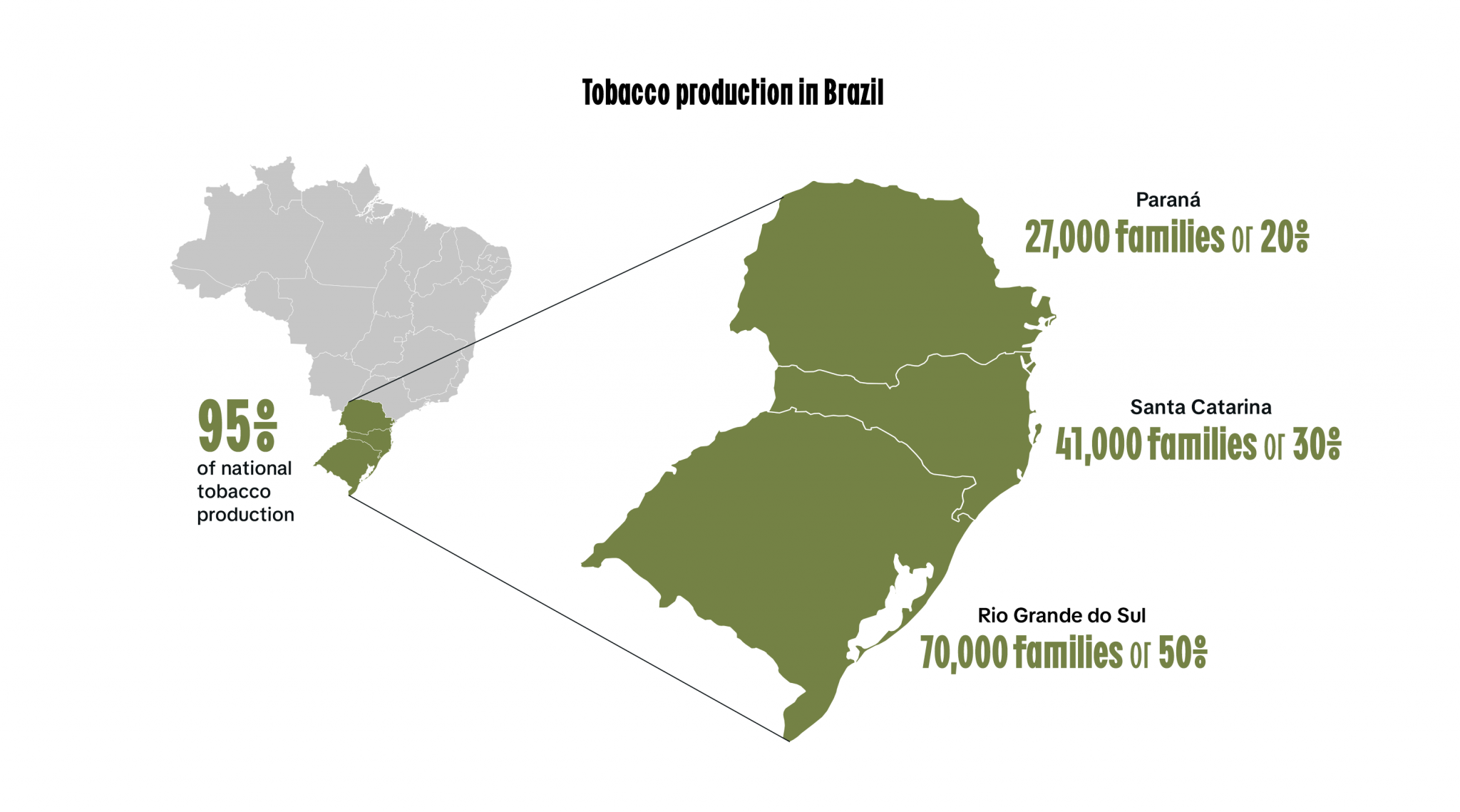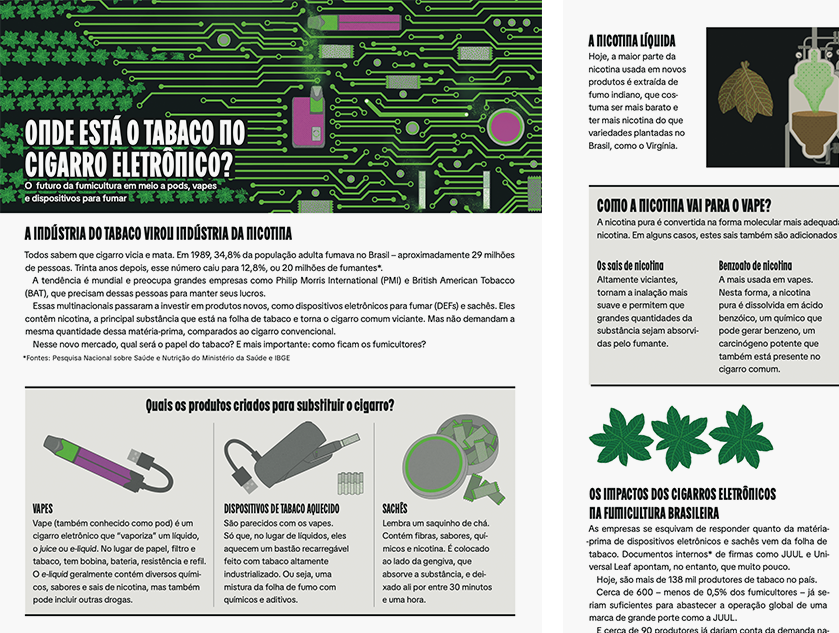Numbers

Philip Morris' global revenue
2016
97.25%
2024
61.3%
CIGARETTES
BAT's sales numbers
2017
732 billion
units
2024
505 billion
units
CIGARETTES
2016
2.75%
2024
37.82%
VAPES, SACHETS AND HEATED TOBACCO PRODUCTS
2017
140 million
units
2024
616 million
units
VAPES
Reports
Less tobacco, more nicotine: how the cigarette industry is planning for vape crops in Brazil
Tobacco companies promise a “new source of income” for farmers through nicotine for vapes. Exclusive documents show that those devices require very few farmers and crops different from those traditionally cultivated in the country.
Lula Government Delays Tobacco Growing Phase-Out Program
The initiative has been sitting in the minister of Agrarian Development’s office since December 2024. Without support from public policies, farmers in tobacco-growing regions face losses when trying to invest in other crops.
BAT inflate data to promise jobs if vapes are legalized in Brazil
Company claims the devices would create 13,000 new jobs in rural areas, but BAT’s e-cigarettes are manufactured in China and, even if they used nicotine extracted from Brazilian tobacco, production would require fewer than 100 farmers.
Fact sheet
Where is the tobacco in the electronic cigarette?
Download a summary of this material here, designed to be circulated and discussed in tobacco-growing regions.
Click here to download